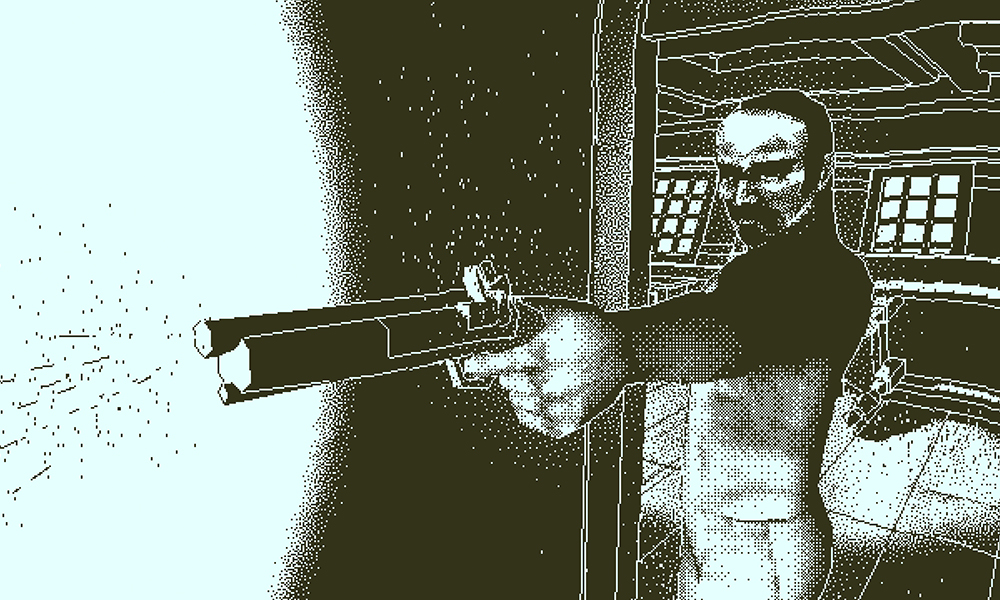I don’t trust people when they say they like watching video games. I’ve tried that part of it, where I watch someone else play a game, and all I can think of is how badly they’re messing everything up and how differently I’d be playing and how wrong they are that they’re not just handing me the controller and letting me do everything right. But enough people have insisted to me that they just like watching that I have no choice but to believe them when they say it.
For the record, when I talk about watching games, I’m talking about people who actually sit in the same room as you when you play it. I’m fully leaning into the burgeoning cranky old man part of my personality that thinks Let’s Plays are a waste of time and everyone watching them should be reading books or watching movies instead.
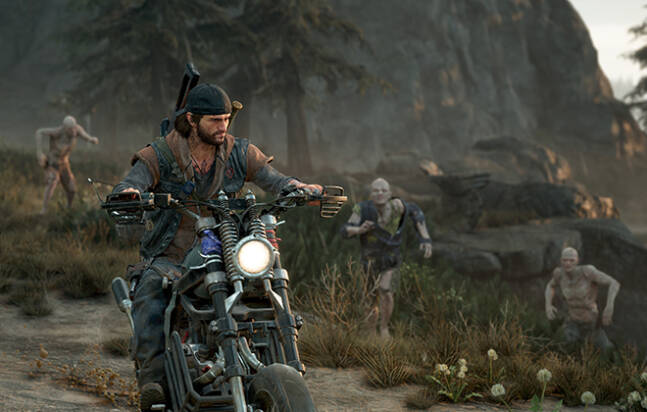
Days Gone
Platforms: PlayStation | PC
Most of the very positive things I have to say about Days Gone I said in the retrospective review I wrote up a few weeks ago, but one of the things I didn’t talk too much about was that my dad spectated my whole playthrough. I’m one of the many many people who spent the pandemic at their parents’ house and since my dad was working from home and I was freshly unemployed, it meant the two of us had hours to kill on the couch with my new PS4. It was a good bonding experience for the both of us and definitely kept us sane through the first few uncertain weeks, possibly because it gave us a cathartic outlet for our collective frustration with the state of the world.
For those of you who didn’t read that review and have no idea what Days Gone even is, it’s a third-person survival shooter where you drive cool motorcycles around the Pacific Northwest killing zombies and trying to piece some semblance of society back together. It’s a long, story-driven game with unique, engaging characters, rewarding combat, and hours of aimless exploration that was generally overlooked or shrugged at when it was released but is getting a lot of much deserved positive reflection.
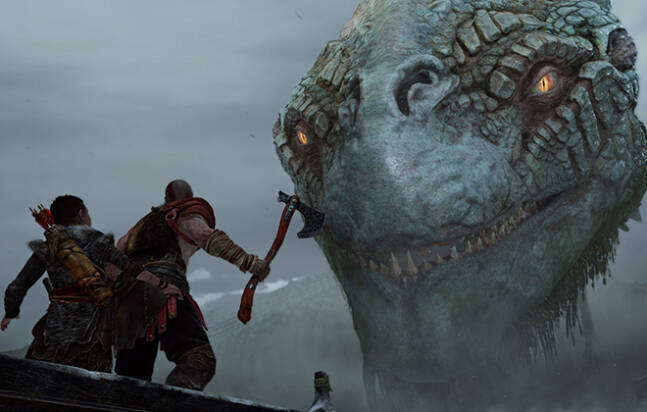
God of War
Platforms: PlayStation | PC
I spent most of the glory days of the PS2 with the Ratchet & Clank series, Medal of Honor: Frontline, and 007: Nightfire, so I missed the first few God of War games. As such, I only really knew them from their reputation as hyper violent slasher games brimming with quicktime events and sneaky sex minigames. Not that I really believed that’s all they were, but I also never particularly cared about Greek or Roman mythology, so that was lost on me too. A Norse sequel was enough to get me in the door though and stunning landscapes, challenging combat, and detailed open world all made it easy to stay.
But what kept me invested the whole time was the absolutely stellar writing. Like I said, I came in expecting a God of War where my main focus was pulling Odin’s other eye out through his ass or making Thor eat his own hammer. Instead, I was treated to a nuanced and at times emotional story about a reticent but loving father trying to honor his late wife and raise his son. There’s plenty of visceral combat, with the expected care and attention paid to boss fights, but there were times I found myself trying to get through the fights as quickly as possible in order to explore more to prompt a few more bonding moments between father and son.
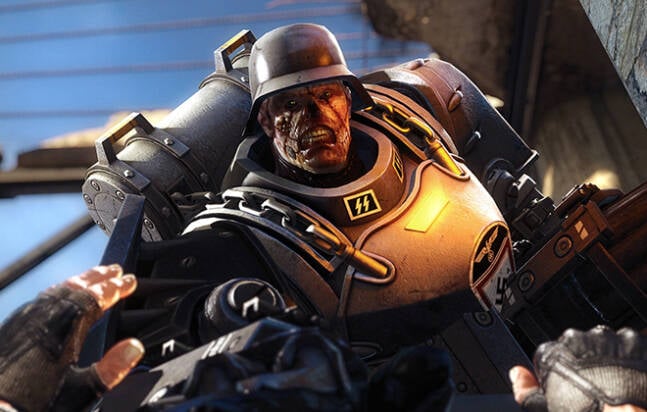
Wolfenstein: The New Order/The New Colossus
Platforms: PlayStation | Xbox | PC
Similar to God of War, both of these games (as well as The Old Blood, a prequel expansion for The New Order) are far better written than they need to be. I bought The New Order because I hadn’t shot Nazis in awhile and was getting an itch. Obviously, The New Order being a Wolfenstein game, I shot plenty of Nazis. But the whole time I was shooting Nazis, I was also being drawn deeper and deeper into these characters’ lives. It’s a point I keep coming back to, but I did not expect to care so much about a man with a name like BJ Blazkowicz.
Neither of these Wolfenstein games is a slouch and you should figure on spending about twenty to thirty hours with both of them. There’s a reasonable amount of exploration to be done, with collectables and secrets to pick up, but the bulk of my own time was spent with my fellow resistance members. You come back to the hideout between each mission, which triggers new opportunities to interact with the others in the safe house. There are bonding moments in the form of drug trips, parties, actually good fetch quests, and conversations that all turn what could easily have been Nazi-hating stereotypes into fully formed comrades, all of whom you come to care about by the end.
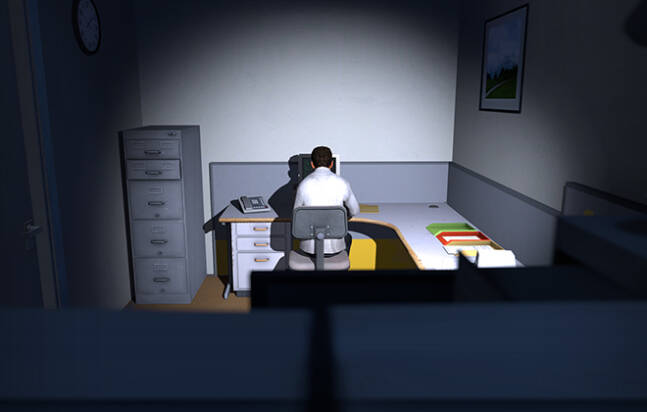
The Stanley Parable & The Stanley Parable: Ultra Deluxe
Platforms: PlayStation | Xbox | PC (PC only for the original The Stanley Parable)
The Stanley Parable and its sequel/update The Stanley Parable: Ultra Deluxe are the kind of games I imagine Douglass Adams would make if he was still alive. They’re surreal, witty, visually impressive, and genuinely surprising. There’s a ridiculous amount of depth to them to the point that I’m not even sure I’ve actually played all the way through.
The premise of both games is simple. An office worker finds himself alone in the building and goes exploring to find out what’s going on. The whole time he’s exploring, he’s accompanied by a narrator who loves throwing around witticisms and sarcastic tags to your in-game actions. Both games evolve into self-aware explorations of a seemingly mundane but actually surreal world and sprinkle in a healthy but non-mastubatory amount of commentary on the state of gaming in their respective release years (2013 for the first, 2022 for the sequel). It’s a weird line to walk, which is also an amusingly punny way to describe both games, and is the perfect game to watch because the player themselves eventually turns into a spectator of sorts anyway.
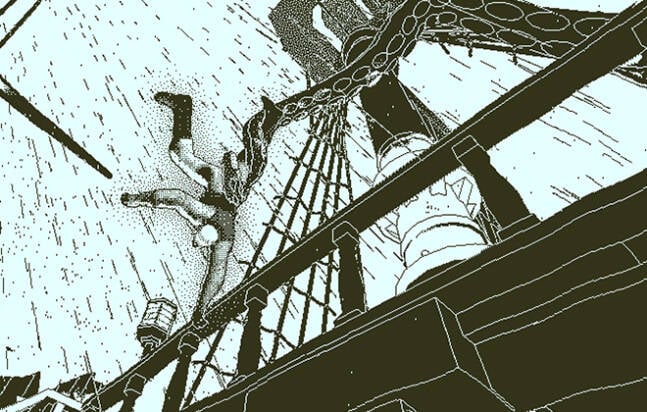
Return of the Obra Dinn
Platforms: PlayStation | Xbox | PC
Return of the Obra Dinn is a detective game at its core but all its trappings are supernatural, a combination that lends itself well to video games despite me not being able to think of many more examples in the same genre. The Obra Dinn and its crew were thought lose at sea until the boat drifts back into port The main character, and only living character besides the boatman who brings you to the Obra Dinn, is an insurance investigator tasked with evaluating the damage on the ship, as well as what happened to the crew, a story that gets more complicated and unnatural the more you investigate. The game further distinguishes itself with a unique, high contrast, pixelated cel shaded muddy green art style and a creepy nautical soundtrack. Both do their part to amplify the unsettling supernatural investigation and keep the player rooted in the setting.
In a rare move for a modern game, Return of the Obra Dinn provides you with the barest tutorial for your investigation and has you rely on your own logic and investigative skills. There’s absolutely no hand holding here and it’s possible, even probable, that you’re going to miss clues and overlook the fates of crew members. Leads don’t generally resolve in the same game sections and some investigations can’t be resolved until others, which you started later, are wrapped up. Having another person in the room with you while you play, or being the person watching someone else play, is a helpful sounding board. You’ll likely both be making different but equally helpful associations, which will ultimately dictate what ending you get, which in turn is dictated by how many fates of the passengers and crew you actually piece together.
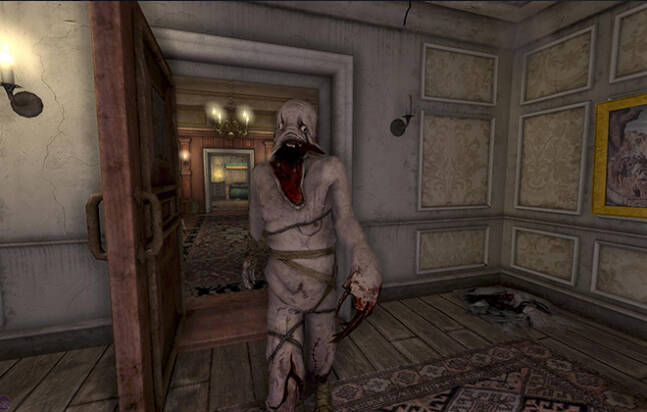
Amnesia: The Dark Descent
Platforms: PlayStation | Xbox | PC
Amnesia: The Dark Descent is proof that if an atmospheric horror game is well made, it doesn’t matter how old it is or what it looks like, it’ll scare the shit out of you. The basic premise here is the player character, Daniel, wakes up in a decaying castle with next to no memory and is being hunted by an unidentified humanoid monster. The game works hard to immerse you from the technical side, with audio engineering and a physics engine that brings a surprisingly weighty reality to in-game sounds and objects. That might sound a little paltry or obvious to the uninitiated, but those are two of the places I’ve found immersion breaks down the most.
Some people might tell you the game is best experienced alone, but I’d disagree, if only so you have someone to grab when you’re scared. I played through with a bunch of friends in college and we’d switch off controllers when we couldn’t handle the pressure anymore. I’d say it was actually more fun not controlling the main character. At least then you could yell at whoever was in charge for being stupid enough to get caught.
There was a sequel released in 2013, Amnesia: A Machine for Pigs, and another in 2020, Amnesia: Rebirth. Both were worthy followups to the first and build on the series’ accomplishments. Expect the same from this year’s upcoming release Amnesia: The Bunker. It’s set in a bunker during the First World War release and comes with a whole suite of technical upgrades, like better graphics and smarter enemies.

